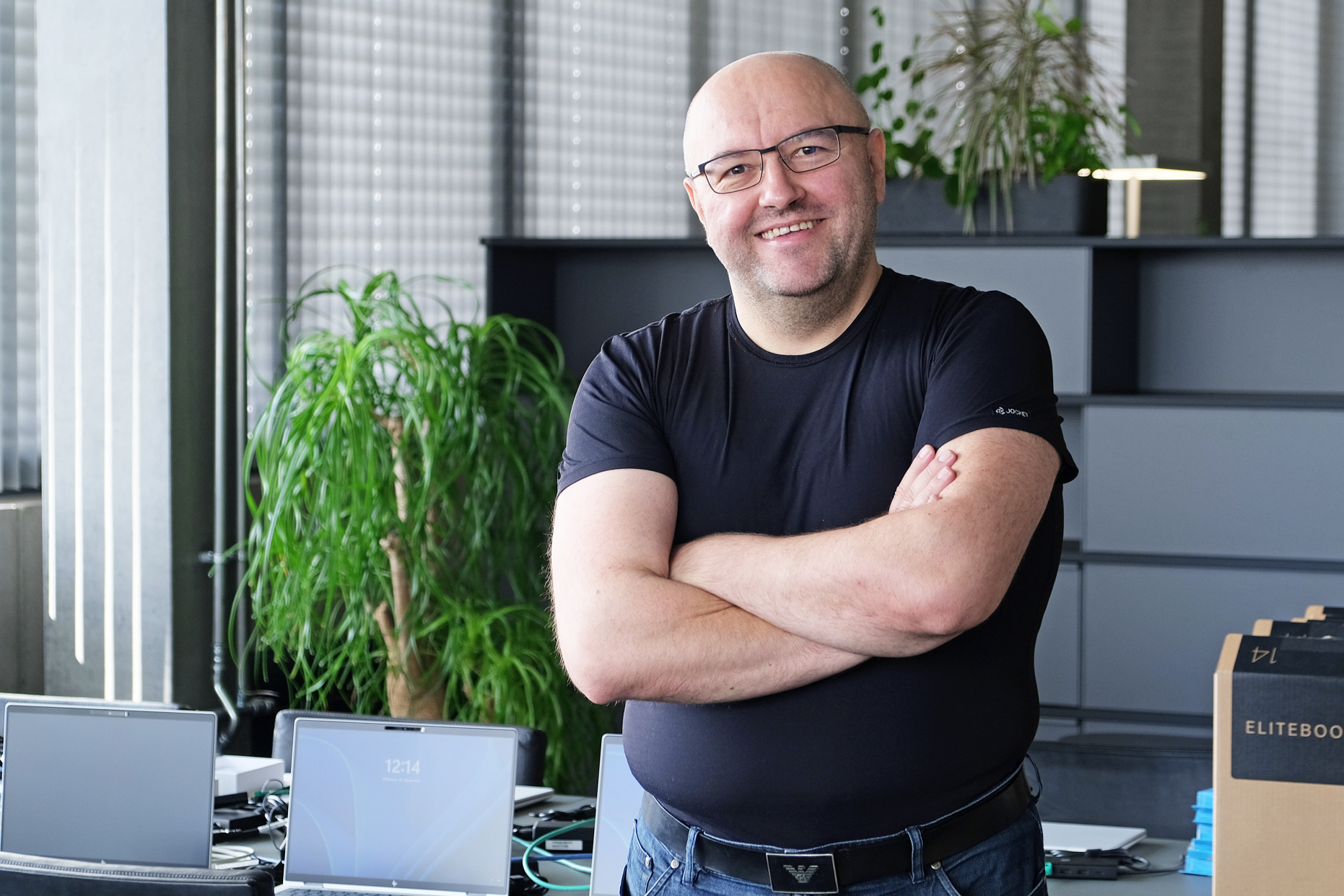Learning for life: Milivoje talks about his experience with Udemy Business
The IT industry is changing constantly and continuous professional development is crucial. We spoke to Milivoje Legenovic, Senior Software Engineer at Profidata, about his experiences with the digital learning platform Udemy Business. Milivoje explains why he is continuously improving his software engineering skills – and why, as a trained bricklayer, he chose to work in IT.
Milivoje, you are a power user of Udemy Business. Which courses are most relevant for you?
I mainly do courses on “Java” or “Reactive Programming because these topics are important in my day-to-day work and in my team. Some of these courses include reactive programming, Postgres, ElasticSearch and messaging in the enterprise environment as well as enterprise patterns. We often use programming languages and complex technologies that I want to explore. It’s very simple, I enter the search term into Udemy Business and get a list of matching courses. Since Profidata has introduced the Enterprise account, we have unlimited access to all courses and can use the content free of charge. That is a big advantage.
There are more than 27,000 courses on various topics such as technology, leadership and mental and physical well-being. How do you choose the right one?
When I enter a keyword, I filter for more details: How high are the ratings? What do other users say about the content? How many people have watched it? The length of the video also gives an indication of whether the course only scratches the surface or goes into depth. If there are more results, I create a “learning path” with relevant courses I would like to watch in the future. That’s the best thing about on-demand learning: you can schedule your lessons as you like.
Which course has been your favourite so far?
My favourite course deals with “Reactive Programming”. The author Vinoth Selvaraj starts with the basics and continues with more complex topics: communication protocols, caching, persistency and integration into non-reactive worlds. There are several videos covering the whole topic of reactive programming. Although I have already watched the course, I keep coming back to it every now and then. Selvaraj teaches important basics that I can apply in my daily work.

What features do you find particularly useful on Udemy Business?
I have years of experience in software development. I don’t need to watch everything because I already know a lot. That’s why my favourite function is to accelerate videos at 1.25x or 1.5x speed. I play the videos on my second screen on the side and listen in more closely when an interesting topic comes up. You can skip within the courses if you don’t need certain chapters. There’s also the option of earning certificates, but I’m not really interested in that – I’m only there for the content.
Working in IT is your passion. Why did you choose this career path?
I come from a completely different background. I am a trained bricklayer and wanted to study civil engineering, which would have been a logical step. But then I decided to go into IT because it is extremely versatile, and you can go into any industry. I could write software for construction companies, for example for CAD applications, or for machinery, the medical industry or the financial sector. There are no limits in IT and things are constantly changing – it’s really exciting. If you decide to go into IT, you have to keep up with the latest developments. You don’t work with the same technology for 30 years. You are creating the future.
You are a power user of Udemy Business. Do you have any advice for your colleagues?
Yes, you should just go online and see what’s available. Udemy Business is a good medium for high-quality content. In contrast to platforms like YouTube, the offering is better and it’s easy to find special content with the filters. There is also no pressure to spend a lot of time there. Sometimes I spend three hours on the platform in one day and then a few weeks go by and I don’t need to use it. I can decide what I learn and how much I learn. What’s really important is that learning always starts with myself. I have to decide that I want to move forward, nobody else does that for me.
How could Profidata encourage employees to participate in these trainings?
I won’t become a great tennis player by watching tennis on TV. I have to go on the court and pick up the racket. In other words, I have to practise it in my everyday life and apply my theoretical knowledge in the real world. At Profidata, we have to make sure that our day-to-day work is not too tightly scheduled, especially in bigger teams. We need enough time for crucial questions: How can we improve things? Which tools are necessary? What additional knowledge do we need and how can we put it into practice? When we do this, people may come together and motivate each other to explore new topics.

Training and development take time. Do you have any tips on effective time management?
Of course, our day-to-day work has to be done, but employees shouldn’t think: “I might not be able to do my job if I start the course. This is too risky for me.” You should risk it and go online now. It’s perfectly fine to take a course during working hours if it has something to do with your area of responsibility. You are looking for answers to certain questions anyway – why not take a relevant course? Let me emphasise again that these courses are completely free of charge for our team.
Professional training and education are big topics for you – why?
The technological developments in our field are constantly changing and these courses help me in my day-to-day work. I can provide valuable input and contribute to the company. I am very motivated to learn new things. And I do not just bring my new knowledge to the next meeting: I build on it and keep it for the rest of my life.
Dear Milivoje Legenovic, thank you for this interview.


